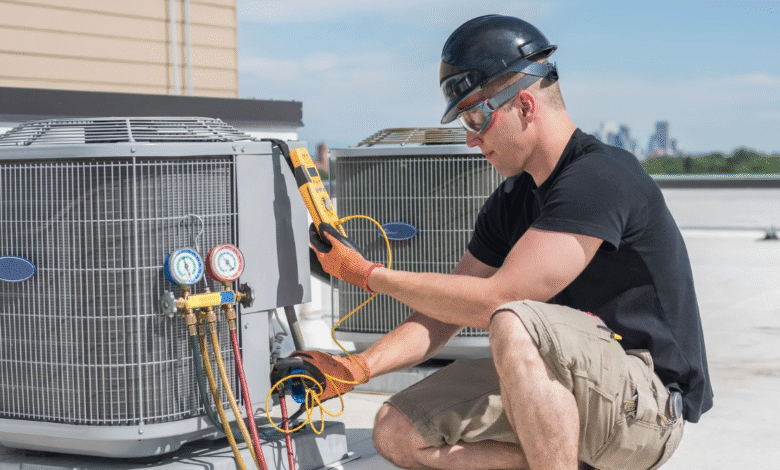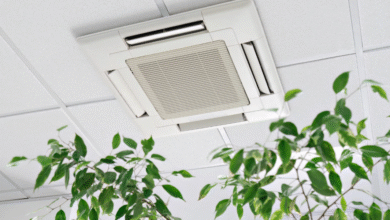How to Prepare Your HVAC System for Extreme Weather Conditions

Extreme weather events are becoming more frequent and intense, placing unprecedented stress on HVAC systems that keep homes comfortable year-round. From scorching heat waves that push air conditioning units beyond their limits to freezing temperatures that can damage outdoor equipment, weather extremes test every component of heating and cooling systems. Many homeowners discover too late that their HVAC equipment wasn’t properly prepared for severe conditions, leading to costly breakdowns during the times they need climate control most. Professional HVAC repair in Ooltewah emphasizes the critical importance of proactive preparation that protects equipment while ensuring reliable operation when weather conditions become challenging. This systematic approach to weather preparation transforms potential system failures into manageable situations that maintain home comfort and protect expensive equipment investments.
Understanding Weather-Related HVAC Vulnerabilities
HVAC systems face unique challenges during extreme weather conditions that can overwhelm components that are not properly maintained or protected. High temperatures force air conditioning units to work continuously at maximum capacity, creating excessive wear on compressors, fans, and electrical components that weren’t designed for sustained peak operation.
Cold weather presents different but equally serious threats to HVAC equipment. Freezing temperatures can cause outdoor units to ice over, block drainage systems, and damage refrigerant lines that become brittle in extreme cold. Heat pumps face particular challenges when temperatures drop below their effective operating range.
Understanding these vulnerabilities enables homeowners to take proactive steps that protect their systems before weather conditions become severe enough to cause damage or complete system failure.
See also: Exploring Tech Innovations in the Automotive Industry
Preventive Maintenance for Weather Resilience
Professional maintenance creates weather-resistant HVAC systems through systematic inspection, cleaning, and adjustment of all components that face stress during extreme conditions. Technicians evaluate system capacity, efficiency, and component condition to identify potential failure points before they become problems.
Refrigerant levels, electrical connections, and mechanical components receive thorough evaluation to ensure optimal performance when systems face maximum demand during heat waves or extended cold periods. This preventive approach prevents minor issues from escalating into major failures during critical weather events.
When considering how long you can expect your HVAC system to last, proper weather preparation significantly extends equipment lifespan by reducing the stress and wear that extreme conditions place on HVAC components throughout their operational life.
Protecting Outdoor Equipment from Weather Damage
Outdoor HVAC units require specific protection measures that shield them from weather extremes while maintaining proper airflow and accessibility for normal operation. Professional installation of protective covers, windbreaks, and elevated platforms prevents weather damage while ensuring system efficiency.
Proper clearance around outdoor units becomes critical during extreme weather when debris, snow, or ice accumulation could block airflow or damage components. Regular inspection and clearance maintenance prevent these obstructions from affecting system performance or causing damage.
Electrical protection measures, including surge suppressors and weatherproof connections, prevent power fluctuations and moisture intrusion that commonly occur during storms and extreme weather events. These protective measures ensure electrical components remain functional despite challenging conditions.
System Capacity and Load Management
Extreme weather places unusual demands on HVAC systems that may exceed their designed capacity, leading to inefficient operation and potential equipment damage. Professional assessment determines whether existing systems can handle expected weather extremes or need capacity upgrades.
Load management strategies help distribute HVAC demands more effectively during peak conditions, preventing system overload while maintaining adequate comfort levels. These strategies include programmable thermostat settings, zone control systems, and supplemental equipment coordination.
Understanding HVAC repair vs replacement becomes important when existing systems cannot handle weather extremes effectively, requiring homeowners to decide between upgrading current equipment or investing in higher-capacity systems.
Emergency Preparedness and Response Planning
Comprehensive weather preparation includes emergency response plans that address potential system failures during extreme conditions. Professional services provide emergency contact information, backup heating options, and system shutdown procedures that protect equipment and maintain safety.
Backup power systems and portable heating or cooling units provide temporary comfort when main HVAC systems require emergency repairs during extreme weather events. These contingency plans prevent complete loss of climate control during the most challenging conditions.
Regular testing of emergency procedures ensures homeowners can respond effectively when weather conditions threaten HVAC system operation. This preparation reduces panic and enables appropriate responses that protect both equipment and occupants.
Conclusion
Preparing HVAC systems for extreme weather conditions requires comprehensive planning, professional maintenance, and proactive protection measures that ensure reliable operation when climate control becomes most critical. The investment in proper weather preparation pays dividends through reduced emergency repairs, improved system reliability, and maintained home comfort during challenging conditions. Homeowners who prioritize professional weather preparation create resilient HVAC systems that continue providing essential climate control regardless of what extreme weather conditions may develop throughout the year.





